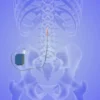Leg Pain

Leg Pain Services Offered in San Antonio, TX
You expect muscle, ligament, and tendon injuries to cause leg pain, but you can also end up with leg pain due to a pinched nerve or blood vessel condition. The experienced physicians at Advanced Spine and Pain Center offer numerous treatments that effectively ease leg pain arising from any cause. Their minimally invasive interventional procedures provide advanced care that can give you the relief you need to get back to enjoying life. If you have questions or want to learn more, call one of the three offices in San Antonio, Texas, or request an appointment online today.
Leg Pain Q&A
What causes leg pain?
There are three primary reasons for leg pain:
Musculoskeletal conditions
The most common causes of leg pain involve problems with your bones, muscles, ligaments, tendons, and joints. A few examples include:
- Arthritis
- Bursitis
- Tendonitis
- Muscle cramps
- Ligament tears
- Stress fractures
- Hamstring injuries
- Shin splints
Problems in your hips and feet can also cause leg pain.
Nerve conditions
Inflamed and damaged nerves frequently cause leg pain. The injured nerves may be in your legs. For example, you may have peripheral neuropathy or meralgia paresthetica (burning thigh), caused by a pinched sensory nerve in your leg.
Leg pain often begins when lower back problems compress nerves. As a result, pain radiates into your leg, a condition called sciatica.
Diabetic neuropathy — nerve damage caused by high blood sugar — causes pain and tingling in your lower legs and feet. If this is the cause of your pain, it’s essential to get diabetes treatment.
Vascular conditions
Leg pain is the top symptom of peripheral artery disease (clogged leg arteries), venous insufficiency (poor vein circulation due to damaged valves), and deep vein thrombosis (a blood clot in a leg vein).
These conditions need treatment from a vascular specialist to prevent serious complications. However, the interventional treatments provided by Advanced Spine and Pain Center can ease leg pain caused by vascular problems.
What other symptoms accompany leg pain?
The musculoskeletal conditions responsible for leg pain often cause additional symptoms. You may have:
- Swelling
- Bruising
- Leg or muscle weakness
- Skin redness or warmth
- Inability to put weight on your leg
- Popping or grinding sounds in the joints
Untreated vascular conditions lead to skin rashes, discolored and thickened skin, and nonhealing ulcers in your lower legs and feet.
How is leg pain treated?
The first line of treatment for musculoskeletal leg pain includes rest or immobilization, physical therapy, and anti-inflammatory medications.
If your leg pain persists, your provider may recommend:
- Joint injections
- TenJet® procedure
- Genicular nerve block
- Epidural steroid injections
- Spinal cord stimulation
- Sympathetic nerve blocks
- Peripheral nerve block
- Selective nerve root block
Several of these procedures stop nerves from sending pain signals to your brain. This blockage substantially eases your discomfort because your brain can’t tell you to feel pain if it doesn’t get the message.
If you need leg pain relief, call Advanced Spine and Pain Center or book an appointment online today.




